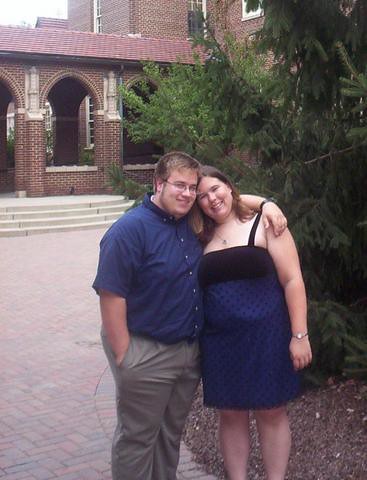Doubt, Limping Away
Nov 17 & 18, 2007
David Hively
Peace Lutheran Church
Scripture:
Genesis 32:22-31
2 Corinthians 12:6-10
Mark 9:14-29
Manuscript:
We have spent the last few weeks talking about faith and doubt, looking at doubt in the lives of Luther and the Saints, and talking about the impact that doubt can have in our own lives. Last week we talked about fear, and the hold that it can take over our lives and how it can keep us from stepping out into the kind of life that God is calling us to. We talked about stepping out in spite of fear, and trusting in God to bring us through. In today’s text we meet someone who is doing just that. He’s telling God about his fears and his doubts.
Jacob is at the bank of the Jabbok river. The sun has long since gone and the only light around comes from the moon which occasionally peeks out from behind the clouds. Beads of sweat are rolling down his face, not because he is hot, but because he is nervous. His brother Esau is on the way, and things are not looking good.
He thinks back to that time, many years ago when Esau came home from working in the field and he found Jacob cooking a pot of lentil stew. Esau has been in the field all day and hunger has gotten the better of him. The rumbling in his stomach has become a full fledged thunderstorm. He’s so hungry, that he believes that he will die without something to eat. Jacob seizes this opportunity. His older brother is the father’s favorite and stands to collect the inheritance when his father dies. With Esau’s life on the line, Jacob sets the price of a bowl of soup at one birthright. Left with no choice Esau hands over his birthright to Jacob for a simple bowl of soup.
As if that wasn’t bad enough, Jacob thinks back to the time just before his father died. The father knew that Jacob had duped Esau out of his birthright, so he prepares to give a final blessing to Esau as a way to try to make up for what he has lost. He sends Esau out to make all of the necessary preparations and while he is away Jacob and his mother hatch the first ever identity theft scheme. They put hair on Jacob’s arms so that the blind father will not be able to tell who it is - Jacob slides in, pretending to be Esau, and takes the blessing for himself. As you might imagine, having been cheated a second time, Esau is furious and hatches a plan to kill Jacob. With his mother’s help, Jacob escapes to a distant land, hoping to lay low until Esau’s anger cools.
Even though it all happened 20 years ago, it all seems like it happened yesterday. Things haven’t been easy for Jacob since he left. The calluses on his hands bear witness to the hard work that he had done. Jacob has changed and he wanted to make amends. He is on his way back home but he fears that Esau may still hold a grudge against him. So he sent some messengers to Esau, but when those messengers return, they had bad news. Esau is on his way, and he’s coming with 400 of his closest friends. It looks like Esau is planning a bloodbath, not a family reunion. Jacob starts to make contingency plans. He’s divided everything he has into two camps, hoping that if Esau comes upon one and destroys it, the other will remain safe. The only thing left to do now is to wait for Esau’s arrival at the break of day.
How could it be that things would end up like this? He is supposed to be the inheritor of the Abrahamic covenant. He is supposed to get land, and offspring. His name is supposed to live on for generations. But what is all of that now? Esau and his army are closing in, and here he sits – alone – waiting, and doubting God’s promises.
In the Christian faith we sometimes talk about wrestling with God. About how we look at the life around us and compare the life that we experience, with the life that God promises and we see that something is wrong. The two visions don’t line up. How can it be that Mother Theresa could dedicate her life to serving the poorest of the poor and yet feel abandoned by God? How can it be that marriage vows of lifelong faithfulness made before God and a community of faith end up shattered? How can it be that nearly every week we hear another account of an innocent child kidnapped and exploited? How can it be that a land that we call “Holy” can be a place of systematic violence and ethnic cleansing? Back and forth we go, trying to reconcile God’s promises and our experiences and we are left with no choice but to sit down next to Jacob at the bank of the Jabbok and wait.
It is here, on the bank of the Jabbok, that the wrestling can really begin. Jacob looks up, and discovers that he is no longer alone. All of his inner turmoil, all of his frustration, all of that energy take a physical form and Jacob begins to wrestle with God. He battles all night long; grappling, wrangling, hanging on for dear life. Until finally, dawn is beginning to break. A new day is beginning, and the man wants to leave, but Jacob will not let go – not until he receives a blessing.
For several weeks now Pastor John and I have stood up here and stressed the importance of being honest with God about your doubts. I hope that some of you have taken us up on that challenge. If you have, you might find that you can empathize with Jacob. You have been to the bank of the Jabbok, you have told God about your doubts and now you are in that wrestling match. As part of worship today, you will be given an opportunity to give your wrestling a concrete, tangible expression. Off to my left, your right there is a cross, waiting to hear from you. There is paper available in the pews on which you can write your doubts, fears, or struggles in your walk with Christ. During Communion you are invited to come and place that paper on the cross.
What kinds of things take you to the bank of the Jabbok river? Is there some relationship in your past that needs to be healed? Maybe there is that part of your life that you just cannot seem to get right. You wrestle with it day after day after day. Some days it feels like you might be getting the upper hand. But other days it seems that all hope is lost. And so you wrestle, long into the night.
Jacob doesn’t walk away from that night unchanged. The scriptures tell us that Jacob was struck on the hip and from that day forward he walked with a limp. But I don’t think that his limp was an impediment so much as it was a testament to the encounter that he had with God. When we ultimately emerge from “the dark night of the soul” we too will be changed. Like Jacob we will have a limp. But this limp is not a disability. It is an opportunity for testimony – a chance to tell others about thee time that you spent wrestling with God.
One of my classmates at the seminary has a son who is in elementary school. He was born with some genetic characteristics which mean that his mind will never develop past roughly the level of a five year old. As you can imagine, this was a bank of the Jabbok moment for my classmate. She spent many nights lying awake staring at the ceiling, wrestling with God. She spent many Sunday mornings unable to worship, only able to ask “Why?” If you fast-forward her story a few years, she is now an advocate for people with developmental disabilities, she works as a consultant to churches who feel a calling to ministry with the developmentally disabled and she has one of the most moving testimonies that you will ever hear. Through her time of wrestling with God, she was left with a limp like Jacob’s. But that limp is now a testimony to God’s power made visible through the many ministries that she has enabled, and all the people who have come to know Jesus because of them.
A few weeks ago we talked about three things that you can do when you are faced with doubts. 1. Acknowledge the doubt; 2. Tell the doubt to God; 3. Tell the doubt to a trusted other. I want to add one more to that list. 4. Testify to what God has brought you through. It can seem paradoxical to tell people about those dark times in our lives. But this is where we can learn a little something from Paul. In 2nd Corinthians he writes that he was given a thorn in the flesh. And that even though he appealed to God three times that it would be taken away – it remained. Then Jesus said, "My grace is sufficient for you, for power is made perfect in weakness." Paul finally declares, “I will boast all the more gladly of my weaknesses, so that the power of Christ may dwell in me.”
On the bank of the Jabbok dawn has broken and Jacob looks up and sees Esau coming with his 400 men. He ran out to meet Esau and bowed before him seven times as a way to honor him. But Esau began running towards Jacob and he reached out and gave him a great big hug, held him close, and gave him a kiss. There was no anger there – just a joyful reunion. Though Jacob had feared the worst, he received a great blessing that day.
God is at work in our lives more powerfully than we could ever know. And it is in those darkest of places, where we cannot rely on our own strength – that God’s grace and power are most evident. As disciples of Jesus it is our mission to limp away from our encounters with God – and testify to the power of God who brought us through even the most difficult of circumstances.
Let us pray: Loving God, You know the times that we have stayed up all night wrestling with you. You know the ways in which we have been wounded. May our times of weakness be opportunities for testimony to the wonders that you have done. In Jesus name, Amen
Subscribe to:
Post Comments (Atom)



No comments:
Post a Comment